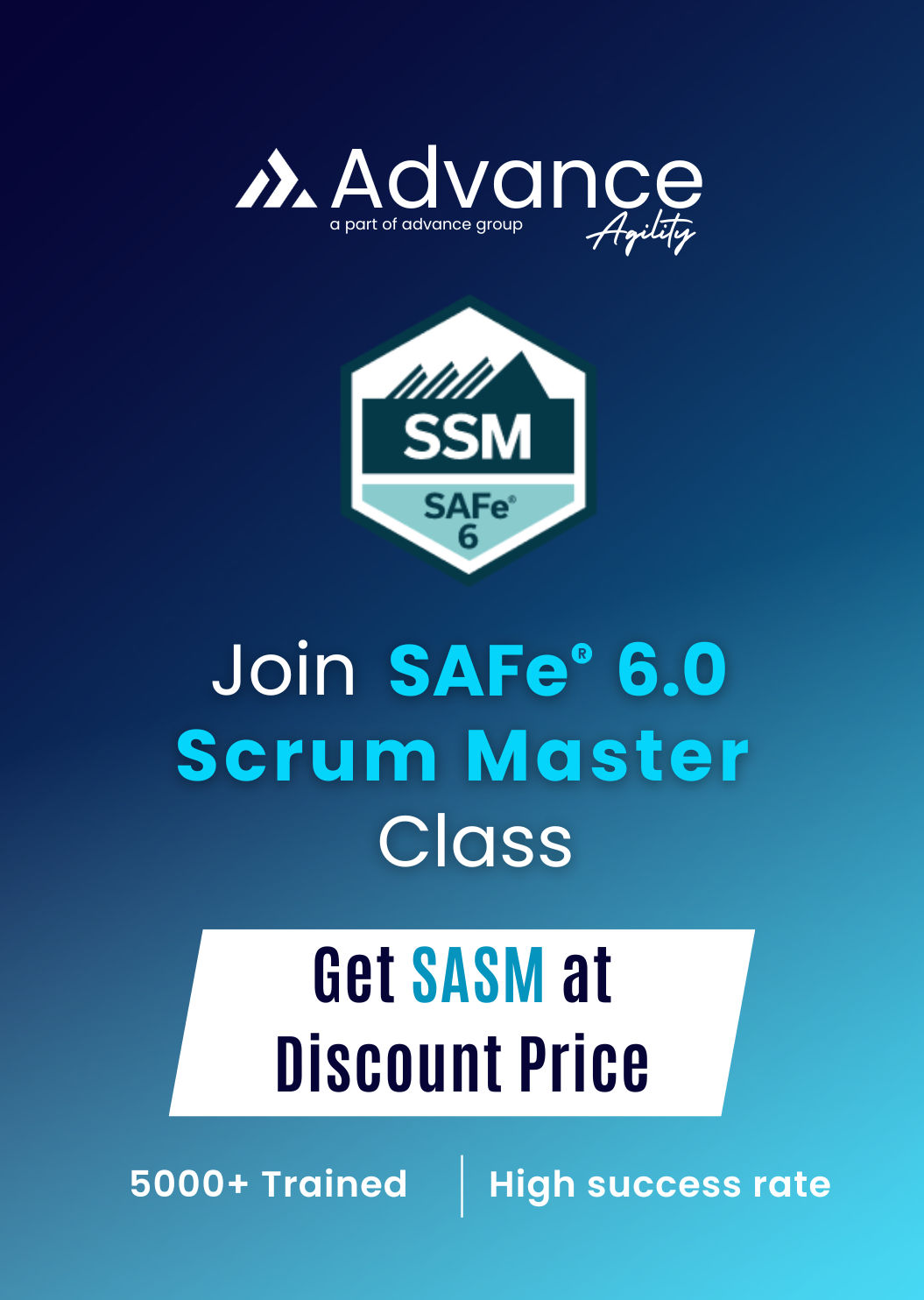 Table of Contents
Table of Contents
- What Does a Scrum Master Do?
- Is a Scrum Master Career
Path Worthwhile?
- Scrum Master Salary and Demand in
2025
- Best Backgrounds to
Transition into a Scrum Master Role
- Essential Skills and
Certifications
- How to Advance Your Scrum
Master Career
- Career Progression: Entry
to Organization Level
- Alternative Career Paths
for Scrum Masters
- Taking the First Step
The job market is evolving rapidly. Teams are leaner, AI tools are everywhere, and responsibilities are shifting across roles. Tasks that once belonged to specific positions now overlap, especially as organizations restructure and adopt modern workflows.
If you’re wondering:
- What does a Scrum Master do?
- Is a Scrum Master career path worthwhile?
- How much can Scrum Masters earn?
this guide will walk you through everything you need to know for 2025 and beyond.
What Does a Scrum Master Do?
A Scrum Master ensures Agile teams work efficiently and deliver value consistently. They facilitate meetings, remove blockers, and guide teams in adopting Agile practices. Beyond the day-to-day tasks, Scrum Masters influence team culture, align stakeholders, and improve delivery outcomes.
Is a Scrum Master Career Path Worthwhile?
Scrum Mastery is more than just running standups. It’s about enabling teams, coaching individuals, and driving organizational impact. Professionals who invest in their growth and adapt to industry changes can enjoy a long-term and fulfilling career.
Despite industry shifts, demand for skilled Scrum Masters remains strong across sectors like healthcare, finance, defense, and technology.
Scrum Master Salary and Demand in 2025
- Typical Tenure: 2–4 years in entry-level roles before moving to senior positions or coaching.
- Job Opportunities: Thousands of open roles across industries adopting Agile at scale.
- Salary Range (U.S.): $105K–$140K depending on experience, industry, and location.
Check the latest Scrum Master openings and salary benchmarks in your area!
Best Backgrounds to Transition into a Scrum Master Role
You don’t need a purely technical background. Many Scrum Masters come from roles emphasizing communication, coordination, and delivery:
- Project Managers: Skilled at planning, stakeholder communication, and risk management.
- Business Analysts: Bridge business and technical teams and facilitate discussions.
- QA Leads/Testers: Experienced in iterative development and quality assurance.
- Customer Support Leads: Strong in problem-solving and managing high-pressure scenarios.
- Team Leads: Experienced in unblocking workflows, guiding teams, and driving alignment.
Essential Skills and Certifications
Success in 2025 requires both technical understanding and soft skills.
Technical Knowledge
- CI/CD Basics: Understand the flow from commit to deployment.
- Backlog Management: Tools like Jira, Azure DevOps, or Rally for prioritization and tracking.
- Metrics Interpretation: Read burndown charts, velocity, and team performance.
- Dependency Awareness: Spot upstream and downstream blockers early.
Soft Skills
- Facilitate meetings effectively with purpose.
- Coach teams without micromanaging.
- Listen actively and navigate team dynamics.
- Ask questions that encourage problem-solving.
- Influence stakeholders without formal authority.
Explore advanced Scrum Master certifications to enhance your skills today.
How to Advance Your Scrum Master Career
Growth is about demonstrating measurable impact:
- Improve team delivery speed, quality, and engagement.
- Support multiple teams and mentor newer Scrum Masters.
- Gain technical knowledge of delivery pipelines and system workflows.
- Pursue advanced certifications or specialized training programs.
Career Progression: Entry to Organization Level
- Entry-Level: Scrum Master / Agile Team Facilitator (single team focus).
- Mid-Level: Senior Scrum Master / Multi-Team Facilitator (mentor others, manage cross-team alignment).
- Program Level: Release Train Engineer (RTE) / Program Coach (coordinate multiple teams, manage dependencies).
- Organization Level: Agile Coach / Transformation Lead (shape Agile practices across the company).
Alternative Career Paths for Scrum Masters
With leadership, systems thinking, and delivery expertise, Scrum Masters can explore:
- Product Management: Move into product owner or manager roles.
- Program/Delivery Management: Oversee larger initiatives.
- Agile Coaching / Transformation: Guide teams and leaders across the organization.
- People Management: Lead teams and develop talent.
- Operations / Business Process: Optimize workflows and remove bottlenecks.
- Learning & Development: Train teams and scale Agile knowledge.
Discover your ideal career path beyond Scrum Mastery.
Taking the First Step
The Scrum Master role is evolving but remains essential. Start by understanding the landscape, gaining experience, and investing in the right training. By doing so, you can open doors to meaningful impact and long-term growth.
Begin your Scrum Master journey today—get certified, gain experience, and lead teams to Agile success!
view Count
1563






